
Current and Recent Projects
The thrust of my current research agenda explores intersections between speculative fiction, geopolitics, and environmental chaos at the local, national, and global scales. This new direction interrogates (more-than-)visual representations of humanity's geological agency at the planetary level, and how such imaginaries impact our everyday geopolitical codes, practices, and orders. Employing Indigenous, feminist, and imaginative approaches to bring the 'geos' into geopolitics, my chapter entitled 'Posthuman Geopolitical Culture(s): Decentering the State in the Anthropocene Epoch' recently appeared in Environmentalism After Humanism (eds. Andrew Rose and Stefanie Fishel). I also published an article in Political Geography on the absent presence of the Anthropocene - specifically anthropogenic degradation of the world's oceans - in the second installation of Disney-MCU's Black Panther franchise, Wakanda Forever (2022). Drawing on related themes, I analyse Western culture's visual relationship with the Anthropocene, including our blind spots, via the apocalyptic Apple TV+ series See (2019-2022); this article recently appeared in a special issue of Critical Studies in Television on televisual landscapes in times of climate crises, which I co-edited with Anne Marit Waade and Irina Souch. Together, the three of us also authored a full-length editorial essay entitled 'Landscapes in the Frame: Anthropocene Screens'. Other recent publications include treatments of the Ghostbusters franchise through the lens of (un)conscious climate culture (Academic Quarter) and Counterpart's pre-mediation of the pandemic-Anthropocene connection for our coming Covid realities (Geopolitics), as well as a review essay on recent texts that plot a new direction in ecocritical geopolitics (Geopolitics).
Linking this research agenda with my multi-year study of Nordic noir TV series and geopolitics is the chapter 'Screening Arctic Landscapes in Nordic Television Drama: Anthropocenic Imaginaries, Ecological Crises, National Identities' (also with Souch and Waade) in Photography, Geopolitics, and the Northern Landscape in the Era of Environmental Crisis, eds. Chris Goldie, Darcy White and Julia Peck (De Gruyter, 2023). Regarding the latter, Geopolitics, Northern Europe, and Nordic Noir: What Television Series Tell Us About World Politics (Routledge, 2021) served as the culmination of this undertaking, which included the development of typology of geopolitical television (Geopolitics), an examination of The Bridge (Bron|Broen) and its first two adaptations in prefiguring (geo)political controversies in Sweden/Denmark, U.S./Mexico, and Great Britain/France (Social & Cultural Geography), and an article focusing on Norwegian national identity against the backdrop of the migration crisis via the police procedural Beforeigners which will be published in a forthcoming special issue on sf in cultural geographies. Ancillary projects include a visiting researcher position at Malmö University, a large-scale collaboration with colleagues at Aarhus University, University of Leeds, and University of Bologna on screening the so-called 'Refugee Crisis' and the impact of televisual interventions on social and civic cohesion across Europe, and several book chapters on crime drama, neoliberalism, and transnational issues. Additionally, I contributed two articles to a special issue of Nordicom Review (which I also co-edited) on geopolitics and Nordic noir; in the first, I examine the depiction of (geo)political landscapes in the Norwegian series Occupied and Nobel, while in the second Pei-Sze Chow, Anne Marit Waade, and I interrogate the changing nature of Nordic noir when transplanted outside the region (specifically The Bridge's adaptation in Malaysia-Singapore).
Linking this research agenda with my multi-year study of Nordic noir TV series and geopolitics is the chapter 'Screening Arctic Landscapes in Nordic Television Drama: Anthropocenic Imaginaries, Ecological Crises, National Identities' (also with Souch and Waade) in Photography, Geopolitics, and the Northern Landscape in the Era of Environmental Crisis, eds. Chris Goldie, Darcy White and Julia Peck (De Gruyter, 2023). Regarding the latter, Geopolitics, Northern Europe, and Nordic Noir: What Television Series Tell Us About World Politics (Routledge, 2021) served as the culmination of this undertaking, which included the development of typology of geopolitical television (Geopolitics), an examination of The Bridge (Bron|Broen) and its first two adaptations in prefiguring (geo)political controversies in Sweden/Denmark, U.S./Mexico, and Great Britain/France (Social & Cultural Geography), and an article focusing on Norwegian national identity against the backdrop of the migration crisis via the police procedural Beforeigners which will be published in a forthcoming special issue on sf in cultural geographies. Ancillary projects include a visiting researcher position at Malmö University, a large-scale collaboration with colleagues at Aarhus University, University of Leeds, and University of Bologna on screening the so-called 'Refugee Crisis' and the impact of televisual interventions on social and civic cohesion across Europe, and several book chapters on crime drama, neoliberalism, and transnational issues. Additionally, I contributed two articles to a special issue of Nordicom Review (which I also co-edited) on geopolitics and Nordic noir; in the first, I examine the depiction of (geo)political landscapes in the Norwegian series Occupied and Nobel, while in the second Pei-Sze Chow, Anne Marit Waade, and I interrogate the changing nature of Nordic noir when transplanted outside the region (specifically The Bridge's adaptation in Malaysia-Singapore).
A See Change? The Problematic (Visual) Politics of Screening the Anthropocene
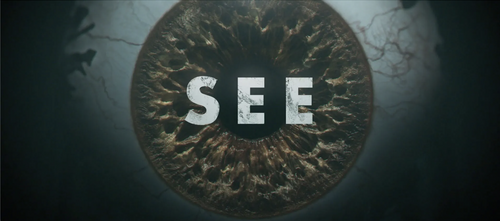
Using the concept of the Anthropo(s)cene, my recently published article, which is part of a special issue of Critical Studies in Television dedicated to televisual landscapes in times of climate crises, interrogates the visual politics of Apple TV+'s series See (2019-2022) to examine the ways in which screened representations of various landforms can be deployed to engage with subconscious guilt associated with the despoiling of the natural environment. Employing a critical assessment of See’s narrative, visuals and production practices, this article argues that the series serves as an example of humanity’s attempt to address its impact on the planet, while simultaneously functioning as a testament to the species’ failure to move beyond the ocularcentrism that many critics suggest sustains the very ideologies that have wrought the New Human Epoch. I also investigate related themes in the editorial essay 'Landscapes in the Frame: Anthropocene Screens', co-authored with Anne Marit Risum Waade and Irina Souch.
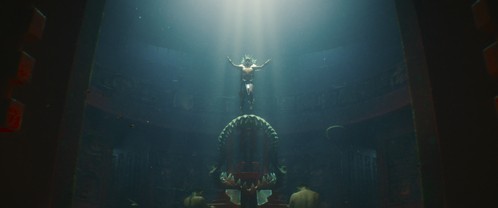
Black + Brown ≠ Green:
The Absent Presence of the Anthropocene in Wakanda Forever
Four years after the globally-lauded premiere of Black Panther, Marvel-Disney launched its sequel Wakanda Forever. The film centres on the new all-female leadership of the fictional African monarchy as it grapples with an emergent threat from Namor, the centuries-old ruler of an undersea Mesoamerican kingdom known as Talokan. By interrogating the absent presence of the Anthropocene in the second iteration of the MCU franchise, my recently-published article in Political Geography interrogates the popular, political, and planetary geographies of the expanding BP universe, focusing on what is screened in WF and what is left unscreened (obscene). In terms of the former, the article complicates the potential-if-unrealised geopolitical condominium between the black and brown superpowers against the (neo)imperial white/surface world. Regarding the latter, it examines director Ryan Coogler’s retro-active change in continuity which denudes Namor of his ecological activism and his burden of care for the oceans and the lifeforms contained therein. While anthropogenic climate change, rampant oceanic pollution, and humanity’s geological agency stalk the filmic narrative, these hyperobjects are conspicuously missing from the diegesis, thus indicating the unwillingness and/or inability of Disney – qua the consummate American global conglomerate – to make a case for environmentalism in the face of cascading planetary crises.
Out of Time/In Place: Norwegianness, ‘Immigration’, and Spatial Belonging in Beforeigners
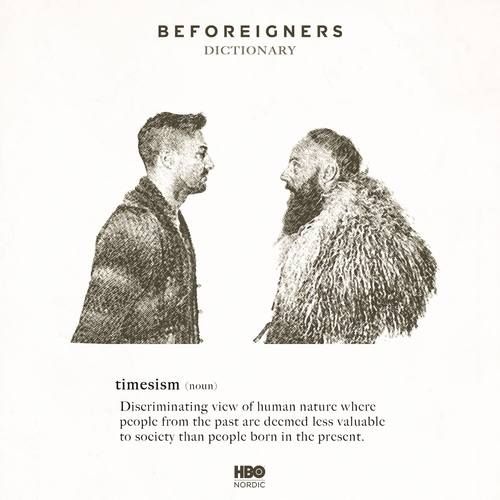
My essay on Beforeigners will be included in a future special issue on geographies of science fiction in cultural geographies, as is now available in pre-print form on the website. In the article, I examine television – as a form of representation, a space of affect, and an instrument of identity production – as a growing force in shaping perceptions of and views on international immigration. While geographers have examined the ways in which films, documentaries, and social media engage with the so-called ‘migrant crisis’ in Europe, there has been little work on fictional TV series as a force in world-building and place-making against the spectre of ‘unchecked migration’. Building on recent research on televisual interventions into the issues of migration, (b)orders, and securitisation, this article interrogates HBO Europe’s Norwegian-language sf series Beforeigners. With a focus on fantastical constructions of spatiality against temporality, the primary focus of this article is on the ways in which near-future science fiction engages with ontological insecurities around integration, xenophobia, and territorial belonging. This is accomplished by engaging the ‘temporal turn’ in cultural geography, which is increasingly focused on linking time, space, and migrant lives/bodies. Recognising TV series’ contributions to cultural, social, and political transformations that are of geographical significance, this essay seeks to expand and complicate scholarship on the suasive power of migrant representation on the small screen.
Other Recent Publications
'The Resonant Slop Machine: Public Diplomacy and Strategic Narratives in the Age of Artificial Intelligence', with Rhys Crilley, Place Branding and Public Diplomacy, https://doi.org/10.1057/s41254-025-00419-z (15 December 2025).
'Posthuman Geopolitical Culture(s): Decentering the State in the Anthropocene Epoch', Environmentalism After Humanism, eds. Andrew Rose and Stefanie Fishel, Palgrave Macmillan (2025), pp. 47-76.
'Ukraine at War: Reflections on Popular Culture as a Geopolitical Battlespace', Czech Journal of International Relations, 59(1), 2024, pp. 23-57.
'Genealogical Journeys, Geographical Imagination, and (Popular) Geopolitics in Who Do You Think You Are?' Social & Cultural Geography, 2024, 25(5): 698-717.
'Screening Arctic Landscapes in Nordic Television Drama: Anthropocenic Imaginaries, Ecological Crises, National Identities', co-authored with Irina Souch and Anne Marit Waade, Disturbed Ecologies: Photography, Geopolitics, and the Northern Landscape in the Era of Environmental Crisis, eds. Chris Goldie, Darcy White, and Julia Peck, Transcript Verlag (2023), pp. 257-281.
'"Did you take the tour?" An Analysis of the Spatial Politics of New Jersey’s Craft Beer Taprooms', co-authored with Emily A. Fogarty, Beer Places: The Micro-Geographies of Craft Beer, eds. Daina Cheyenne Harvey, Ellis Jones, and Nate Chapman, University of Arkansas Press (2023), pp. 193-216.
'Posthuman Geopolitical Culture(s): Decentering the State in the Anthropocene Epoch', Environmentalism After Humanism, eds. Andrew Rose and Stefanie Fishel, Palgrave Macmillan (2025), pp. 47-76.
'Ukraine at War: Reflections on Popular Culture as a Geopolitical Battlespace', Czech Journal of International Relations, 59(1), 2024, pp. 23-57.
'Genealogical Journeys, Geographical Imagination, and (Popular) Geopolitics in Who Do You Think You Are?' Social & Cultural Geography, 2024, 25(5): 698-717.
'Screening Arctic Landscapes in Nordic Television Drama: Anthropocenic Imaginaries, Ecological Crises, National Identities', co-authored with Irina Souch and Anne Marit Waade, Disturbed Ecologies: Photography, Geopolitics, and the Northern Landscape in the Era of Environmental Crisis, eds. Chris Goldie, Darcy White, and Julia Peck, Transcript Verlag (2023), pp. 257-281.
'"Did you take the tour?" An Analysis of the Spatial Politics of New Jersey’s Craft Beer Taprooms', co-authored with Emily A. Fogarty, Beer Places: The Micro-Geographies of Craft Beer, eds. Daina Cheyenne Harvey, Ellis Jones, and Nate Chapman, University of Arkansas Press (2023), pp. 193-216.
Books
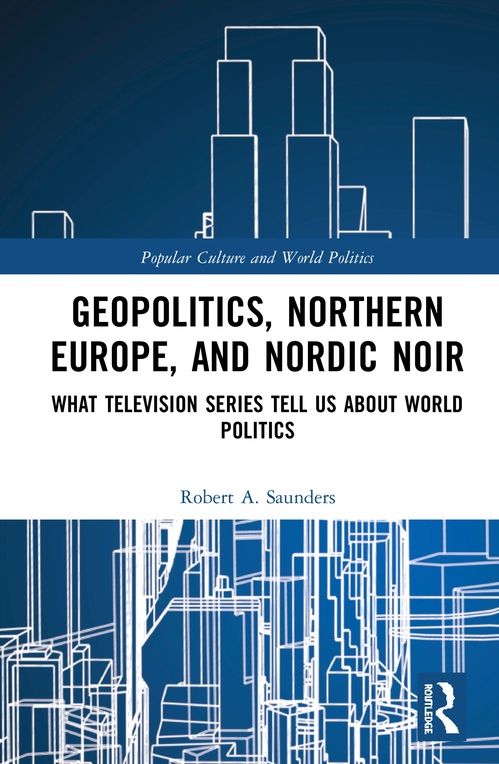
Geopolitics, Northern Europe, and Nordic Noir: What Television Series Tell Us About World Politics. Routledge (2022, paperback; 2021 cloth).
'Geopolitics, Northern Europe, and Nordic Noir is one of those rare books that transcends disciplines to leave a seminal mark on several [providing] a hitherto unexamined argument for attending particularly to Nordic televisual crime narratives to investigate a current geopolitical moment marked by Anthropogenic climate change and cultural polarisations that transcend the Nordic region'. ~ Scandinavica
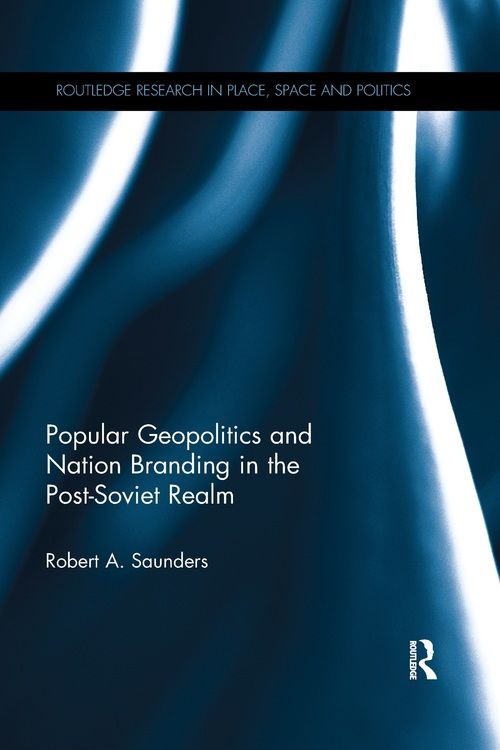
Popular Geopolitics and Nation Branding in the Post-Soviet Realm. Routledge (2020, paperback; 2017 cloth).
'An original and important contribution to the study of visual culture and its implications on nationalism, geopolitics, and the framing of broader geographical imaginations...[and] an insightful overview of the emergent histories of the spaces and people of the post-Soviet Union'. ~ Social & Cultural Geography
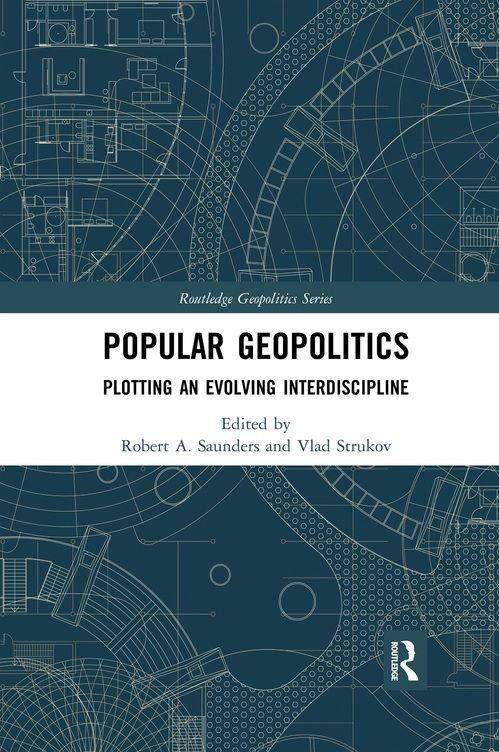
Popular Geopolitics: Plotting an Evolving Interdiscipline. Routledge (2020 paperback; 2018 cloth).
'Robert A. Saunders and Vlad Strukov's edited collection works to bring popular culture and world politics scholarship together in a cohesive body of work through a careful tracing of both fields as logically converging into an interdisciplinary field capable of incorporating new and evolving intellectual currents'. ~ The AAG Review of Books
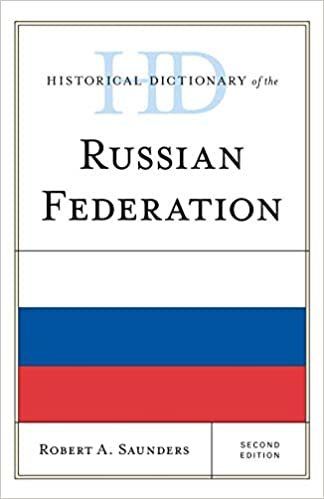
Historical Dictionary of the Russian Federation, 2nd Ed. Scarecrow Press (2019); first ed. co-authored with Vlad Strukov (2010).
'The Historical Dictionary of the Russian Federation fills a gap in the truest sense of the word'. ~ Reference Reviews
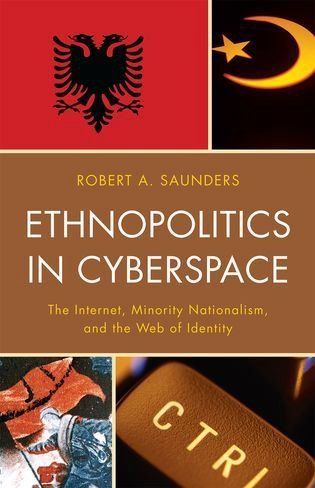
Ethnopolitics in Cyberspace: The Internet, Minority Nationalism, and the Web of Identity. Lexington Books (2016 paperback; 2010 cloth).
'A welcome contribution [that] deserves the attention of a wide public, as it is a worthwhile contribution to this relatively new field'. ~ Ethnic and Racial Studies

The Many Faces of Sacha Baron Cohen: Politics, Parody, and the Battle over Borat. Lexington Books (2009 paperback; 2008 cloth).
'A thoroughly detailed exploration of Cohen's explosive comedy. A smart read deserving of a lot of "respek"'. ~ Michael Musto